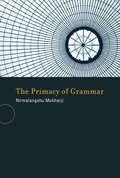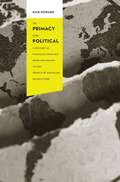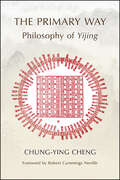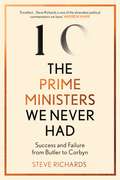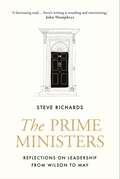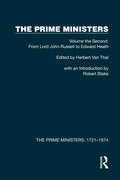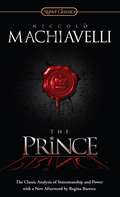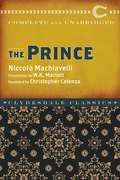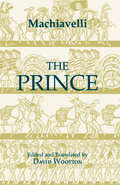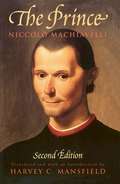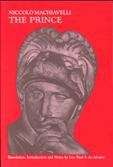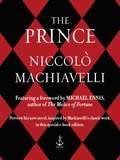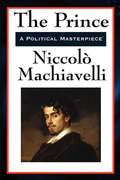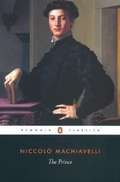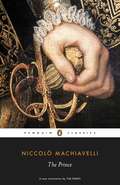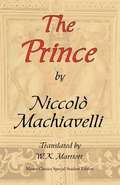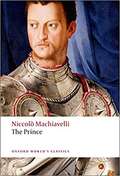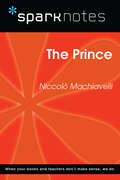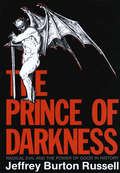- Table View
- List View
The Primacy of Grammar
by Nirmalangshu MukherjiA proposal that the biolinguistic approach to human languages may have identified, beyond the study of language, a specific structure of the human mind.The contemporary discipline of biolinguistics is beginning to have the feel of scientific inquiry. Biolinguistics—especially the work of Noam Chomsky—suggests that the design of language may be “perfect”: language is an optimal solution to conditions of sound and meaning. What is the scope of this inquiry? Which aspect of nature does this science investigate? What is its relation to the rest of science? What notions of language and mind are under investigation? This book is a study of such foundational questions. Exploring Chomsky's claims, Nirmalangshu Mukherji argues that the significance of biolinguistic inquiry extends beyond the domain of language.Biolinguistics is primarily concerned with grammars that represent just the computational aspects of the mind/brain. This restriction to grammars, Mukherji argues, opens the possibility that the computational system of human language may be involved in each cognitive system that requires similar computational resources. Deploying analytical argumentation and empirical evidence, Mukherji suggests that a computational system of language consisting of very specific principles and operations is likely to be involved in each articulatory symbol system—such as music—that manifests unboundedness. In that sense, the biolinguistics approach may have identified, after thousands of years of inquiry, a specific structure of the human mind.
The Primacy of the Political: A History of Political Thought from the Greeks to the French and American Revolutions (Columbia Studies in Political Thought / Political History)
by Dick HowardThe conflict between politics and antipolitics has replayed throughout Western history and philosophical thought. From the beginning, Plato's quest for absolute certainty led him to denounce democracy, an anti-political position challenged by Aristotle. In his wide-ranging narrative, Dick Howard puts this dilemma into fresh perspective, proving our contemporary political problems are not as unique as we think.Howard begins with democracy in ancient Greece and the rise and fall of republican politics in Rome. In the wake of Rome's collapse, political thought searched for a new medium, and the conflict between politics and antipolitics reemerged through the contrasting theories of Saint Augustine and Saint Thomas. During the Renaissance and Reformation, the emergence of the modern individual again transformed the terrain of the political. Even so, politics vs. antipolitics dominated the period, frustrating even Machiavelli, who sought to reconceptualize the nature of political thought. Hobbes and Locke, theorists of the social contract, then reenacted the conflict, which Rousseau sought (in vain) to overcome. Adam Smith and the growth of modern economic liberalism, the radicalism of the French revolution, and the conservative reaction of Edmund Burke subsequently marked the triumph of antipolitics, while the American Revolution momentarily offered the potential for a renewal of politics. Taken together, these historical examples, viewed through the prism of philosophy, reveal the roots of today's political climate and the trajectory of battles yet to come.
The Primary Way: Philosophy of Yijing
by Chung-ying ChengIn The Primary Way, the distinguished scholar of Chinese philosophy Chung-ying Cheng synthesizes his lifetime of work on the Yijing, also known as the I Ching or Book of Changes. Cheng offers a systematic engagement with the classic Chinese text as a philosophy that is still valuable and relevant today. In contemporary philosophical terms, Cheng has developed the ontological hermeneutics of the Yijing as well as its philosophical methodology of symbolic reference in a holistic and onto-generative system of trigrams and hexagrams. The book is organized around eight themes that illuminate Cheng's interpretation of the Yijing as a philosophy for creative human action and transformation. He demonstrates how the philosophy of change in the Yijing embodies early Chinese ontology, cosmology, epistemology, and virtue ethics in the interpretation of divinatory judgments. Cheng's work shows how the philosophy of change contains a vision of humanity as creatively related to heaven and earth, and how it gives positive meaning to any change as part of a ceaseless creativity. With this understanding, it enables humanity to develop its potential as a partner of heaven and earth.
The Prime Ministers We Never Had: Success and Failure from Butler to Corbyn
by Steve RichardsBOOK OF THE YEAR, The Times, Guardian and ProspectWas Harold Wilson a bigger figure than Denis Healey? Was John Major more 'prime ministerial' than Michael Heseltine? Would David Miliband have become prime minister if it were not for his brother Ed? Would Ed have become prime minister if it were not for David? How close did Jeremy Corbyn come to being prime minister?In this piercing and original study, journalist and commentator Steve Richards looks at eleven prime ministers we never had, examining what made each of these illustrious figures unique and why they failed to make the final leap to the very top. Combining astute insights into the demands of leadership with compelling historical analysis, this fascinating exploration of failure and success sheds new light on some of the most compelling characters in British public life.
The Prime Ministers: Reflections on Leadership from Wilson to May
by Steve RichardsAt a time of unprecedented political upheaval, this magisterial history explains who leads us and why. From Harold Wilson to Theresa May, it brilliantly brings to life all nine inhabitants of 10 Downing Street over the past 50 years, vividly outlining their successes and failures—and what made each of them special. Based on unprecedented access and in-depth interviews, and inspired by the author's BBC Radio 4 and television series, Steve Richards expertly examines the men and women who have defined the UK's role in the modern world and sheds new light on the demands of the highest public office in the land.
The Prime Ministers: Volume the First: From Sir Robert Walpole to Sir Robert Peel (The Prime Ministers: 1721–1974)
by Herbert Van Thal G. W. JonesThere is really in law no such office as that of Prime Minister. No statute grants him or her powers. Even the name came into official use only in 1878, and the Prime Minister as such only became known to the law in 1905. The office of Prime Minister has in fact been based on convention and has been shaped by personal and political factors; it is what the holder makes of it and that is why a sensible way to study the development of the office is by reading the biographies of its holders.Originally published in 1974 (volume 1) and 1975 (volume 2), beginning with Robert Walpole and including Edward Heath, the holder at the time, there had been forty-seven Prime Ministers in all. Yet there had been no book devoted exclusively to recording their characters, actions and achievements, to which the student or the interested general reader could turn for immediate information, even if they did not seek to read the whole 250-year record – in itself a fascinating story for the politically minded. To fill this gap leading political historians of the time were invited to contribute papers, each in their own special period, and we are presented, as a result, with a complete gallery of Prime Ministers, each paper revealing the constant interaction of personality and circumstance, and the whole collection providing an impressive record of the way the premiership changed with its various incumbents.
The Prime Ministers: Volume the Second: From Lord John Russell to Edward Heath (The Prime Ministers: 1721–1974)
by Herbert Van Thal Robert BlakeThere is really in law no such office as that of Prime Minister. No statute grants him or her powers. Even the name came into official use only in 1878, and the Prime Minister as such only became known to the law in 1905. The office of Prime Minister has in fact been based on convention and has been shaped by personal and political factors; it is what the holder makes of it and that is why a sensible way to study the development of the office is by reading the biographies of its holders.Originally published in 1974 (volume 1) and 1975 (volume 2), beginning with Robert Walpole and including Edward Heath, the holder at the time, there had been forty-seven Prime Ministers in all. Yet there had been no book devoted exclusively to recording their characters, actions and achievements, to which the student or the interested general reader could turn for immediate information, even if they did not seek to read the whole 250-year record – in itself a fascinating story for the politically minded. To fill this gap leading political historians of the time were invited to contribute papers, each in their own special period, and we are presented, as a result, with a complete gallery of Prime Ministers, each paper revealing the constant interaction of personality and circumstance, and the whole collection providing an impressive record of the way the premiership changed with its various incumbents.
The Primitivist Theory of Truth
by Jamin AsayJamin Asay's book offers a fresh and daring perspective on the age-old question 'What is truth?', with a comprehensive articulation and defence of primitivism, the view that truth is a fundamental and indefinable concept. Often associated with Frege and the early Russell and Moore, primitivism has been largely absent from the larger conversation surrounding the nature of truth. Asay defends primitivism by drawing on a range of arguments from metaphysics, philosophy of language and philosophy of logic, and navigates between correspondence theory and deflationism by reviving analytic philosophy's first theory of truth. In its exploration of the role that truth plays in our cognitive and linguistic lives, The Primitivist Theory of Truth offers an account of not just the nature of truth, but the foundational role that truth plays in our conceptual scheme. It will be valuable for students and scholars of philosophy of language and of metaphysics.
The Prince
by Regina Barreca Niccolò Machiavelli Christian GaussThe Classic Analysis of Statesmanship and Power: After a lifetime of winning and losing at the game of politics, Florentine nobleman Machiavelli set down its ageless rules and moves in this highly readable treatise. Witty, informative, and devilishly shrewd, it has long been required reading for everyone interested in politics and power.
The Prince
by Niccolò Machiavelli Christopher CelenzaPackaged in handsome, affordable trade editions, Clydesdale Classics is a new series of essential works. From the musings of intellectuals such as Thomas Paine in Common Sense to the striking personal narrative of Harriet Jacobs in Incidents in the Life of a Slave Girl, this new series is a comprehensive collection of our intellectual history through the words of the exceptional few.Widely acknowledged as Machiavelli’s defining work, The Prince is an innovative and rich treatise marked by his political theories and the principles of leadership. Based upon his own experiences witnessing “the actions of great men” and the often immoral aspects that come with power, Machiavelli encouraged ambition amongst leaders—which was a break from the philosophy of other contemporary thinkers. The Prince identifies the aims of powerful leaders, which can help to justify the use of largely immoral means in their methods.With a new foreword by scholar Christopher Celenza, this essential work on politics contemplates leadership in a manner still relevant today. This lesson in autocratic rule will provide the reader with the author’s rational approach to control and the contextualization for the term “Machiavellian.”
The Prince
by Niccolo Machiavelli David WoottonThis is an excellent, readable and vigorous translation of The Prince, but it is much more than simply a translation. The map, notes and guide to further reading are crisp, to-the-point and yet nicely comprehensive. The inclusion of the letter to Vettori is most welcome. But, above all, the Introduction is so gripping and lively that it has convinced me to include The Prince in my syllabus for History of Western Civilization the next time that I teach it. . . . Great price, too! And lovely printing and layout. --Rachel Fulton, University of Chicago
The Prince
by Niccolo Machiavelli Harvey C. MansfieldPolitics according to Machiavelli is not limited by things above it, and things normally taken to be outside politics-- the "givens" in any political situation-- turn out to be much more under the control of politics than politicians, peoples, and philosophers have assumed.
The Prince
by Niccolo Machiavelli Leo Paul S. de AlvarezA worthy translation of an important document in political philosophy! What separates this translation from others available is de Alvarez's attempt to be literal in order to preserve the remarkable precision of Machiavelli's speech. This distinctively accurate translation has been described as "careful, unusual, and challenging," permitting the reader to appreciate the manner and substance of Machiavelli's argument. States the translator in his twenty-four page introduction: "Among the reasons why this translation attempts to preserve the difficulties and ambiguities of the text is that Machiavelli is providing a puzzle that must be carefully and patiently worked through, and only those so willing to work will see what it is he has 'with great diligence long reflected upon and examined.' In other words, Machiavelli intends that the reader be caught up in the web of his discourse, and he does this by fascinating his readers with difficulties."
The Prince
by Niccolo Machiavelli Michael EnnisThis is an EXACT reproduction of a book published before 1923. This IS NOT an OCR'd book with strange characters, introduced typographical errors, and jumbled words. This book may have occasional imperfections such as missing or blurred pages, poor pictures, errant marks, etc. that were either part of the original artifact, or were introduced by the scanning process. We believe this work is culturally important, and despite the imperfections, have elected to bring it back into print as part of our continuing commitment to the preservation of printed works worldwide. We appreciate your understanding of the imperfections in the preservation process, and hope you enjoy this valuable book.
The Prince
by Tim Parks Niccolo MachiavelliA new translation of the infamous Renaissance classic, in a striking deluxe edition The original blueprint for realpolitik, The Prince shocked sixteenth-century Europe with its advocacy of ruthless tactics for gaining absolute power and its abandonment of conventional morality. For this treatise on statecraft, Machiavelli drew upon his own experience of office under the turbulent Florentine republic, rejecting traditional values of political theory and recognizing the complicated, transient nature of political life. Concerned not with lofty ideals, but with a regime that would last, this seminal work of modern political thought retains its power to alarm and to instruct.
The Prince
by Niccolo MachiavelliIt was Niccolò Machiavelli who essentially removed ethics from government. He did it with this book, when he asserted that The Prince (president, dictator, prime minister, etc.) does not have to be concerned with ethics, as long as their motivation is to protect the state. It is this questionable belief that in many ways had lead to the modern world as we know it. His assertion was that the head of state must protect the state no matter the cost and no matter what rules he or she breaks in the process. If you want to understand modern politics you must read this book.
The Prince
by Niccolo MachiavelliNiccoló Machiavelli drew on his own experience of office under the turbulent Florentine republic, rejecting traditional values of political theory and recognizing the complicated, transient nature of political life. Concerned not with lofty ideal but with a regime that would last, The Prince has become the bible of realpolitik, and it still retains its power to alarm and to instruct.
The Prince
by Niccolo Machiavelli'A gripping work, and a gripping translation' Nicholas Lezard, GuardianNiccolò Machiavelli's brutally uncompromising manual of statecraft, The Prince is translated and edited with an introduction by Tim Parks in Penguin Classics As a diplomat in turbulent fifteenth-century Florence, Niccolò Machiavelli knew how quickly political fortunes could rise and fall. The Prince, his tough-minded, pragmatic handbook on how power really works, made his name notorious and has remained controversial ever since. How can a leader be strong and decisive, yet still inspire loyalty in his followers? When is it necessary to break the rules? Is it better to be feared than loved? Examining regimes and their rulers the world over and throughout history, from Roman Emperors to renaissance Popes, from Hannibal to Cesare di Borgia, Machievalli answers all these questions in a work of realpolitik that still has shrewd political lessons for today. Tim Parks's acclaimed contemporary translation renders Machiavelli's no-nonsense original as alarming and enlightening as when it was first written. His introduction discusses Machiavelli's life and reputation, and explores the historical background to the work.'Tim Parks's swift and supple new translation brings out all its chilling modernity' Boyd Tonkin, Independent
The Prince
by Niccolò MachiavelliThe most famous book on politics ever written, The Prince remains as lively and shocking today as when it was written almost five hundred years ago. Initially denounced as a collection of sinister maxims and a recommendation of tyranny, it has more recently been defended as the first scientific treatment of politics as it is practiced rather than as it ought to be practiced. Harvey C. Mansfield's brilliant translation of this classic work, along with the new materials added for this edition, make it the definitive version of The Prince, indispensable to scholars, students, and those interested in the dark art of politics. This revised edition of Mansfield's acclaimed translation features an updated bibliography, a substantial glossary, an analytic introduction, a chronology of Machiavelli's life, and a map of Italy in Machiavelli's time. "Of the other available [translations], that of Harvey C. Mansfield makes the necessary compromises between exactness and readability, as well as providing an excellent introduction and notes."—Clifford Orwin, The Wall Street Journal "Mansfield's work . . . is worth acquiring as the best combination of accuracy and readability."—Choice "There is good reason to assert that Machiavelli has met his match in Mansfield. . . . [He] is ready to read Machiavelli as he demands to be read—plainly and boldly, but also cautiously."—John Gueguen, The Sixteenth Century Journal
The Prince
by Niccoló Machiavelli W. X. MarriottThe Prince is unique, not because it explains how to take control of other lands and how to control them, but because it gives advice that often disregards all moral and ethical rules. About this Machiavelli states that: The Prince examines the acquisition, perpetuation, and use of political power in the western world. It is a classic study of power--its acquisition, expansion, and effective use.
The Prince (Oxford World's Classics)
by Maurizio Viroli Peter Bondanella Niccolò MachiavelliWhen Machiavelli's brief treatise on Renaissance statecraft and princely power was posthumously published in 1532, it generated a debate that has raged unabated until the present day. Based upon Machiavelli's first-hand experience as an emissary of the Florentine Republic to the courts of Europe, The Prince analyses the usually violent means by which men seize, retain, and lose political power. <p><p> Machiavelli added a dimension of incisive realism to one of the major philosophical and political issues of his time, especially the relationship between public deeds and private morality. His book provides a remarkably uncompromising picture of the true nature of power, no matter in what era or by whom it is exercised. This fluent new translation is accompanied by an introduction that considers the true purpose of The Prince and dispels some of the myths associated with it. <p><p> It has the most comprehensive explanatory and critical notes found in any currently available English translation and the most comprehensive bibliography in any edition of the work. It also contains a helpful Glossary of Proper Names, an Index and a map. <p><p> About the Series: For over 100 years Oxford World's Classics has made available the broadest spectrum of literature from around the globe. Each affordable volume reflects Oxford's commitment to scholarship, providing the most accurate text plus a wealth of other valuable features, including expert introductions by leading authorities, voluminous notes to clarify the text, up-to-date bibliographies for further study, and much more.
The Prince (Penguin Classics)
by Tim Parks Niccolo MachiavelliHere is the world's most famous master plan for seizing and holding power. Astonishing in its candor The Prince even today remains a disturbingly realistic and prophetic work on what it takes to be a prince . . . a king . . . a president. When, in 1512, Machiavelli was removed from his post in his beloved Florence, he resolved to set down a treatise on leadership that was practical, not idealistic. In The Prince he envisioned would be unencumbered by ordinary ethical and moral values; his prince would be man and beast, fox and lion. Today, this small sixteenth-century masterpiece has become essential reading for every student of government, and is the ultimate book on power politics.
The Prince (SparkNotes Philosophy Guide)
by SparkNotesThe Prince (SparkNotes Philosophy Guide) Making the reading experience fun! SparkNotes Philosophy Guides are one-stop guides to the great works of philosophy–masterpieces that stand at the foundations of Western thought. Inside each Philosophy Guide you&’ll find insightful overviews of great philosophical works of the Western world.
The Prince and the Discourses
by Niccolo Machiavelli Max Lerner Luigi RicciThe Prince and the Discourses by Niccolo Machiavelli
The Prince of Darkness: Radical Evil and the Power of Good in History
by Jeffrey Burton RussellThe Devil, Satan, Lucifer, Mephistopheles - throughout history the Prince of Darkness, the Western world's most powerful symbol of evil, has taken many names and shapes. Jeffrey Burton Russell here chronicles the remarkable story of the Devil from antiquity to the present. While recounting how past generations have personified evil, he deepens our understanding of the ways in which people have dealt with the enduring problem of radical evil. After a compelling essay on the nature of evil, Russell uncovers the origins of the concept of the Devil in various early cultures and then traces its evolution in Western thought from the time of the ancient Hebrews through the first centuries of the Christian era. Next he turns to the medieval view of the Devil, focusing on images found in folklore, scholastic thought, art, literature, mysticism, and witchcraft. Finally, he follows the Devil into our own era, where he draws on examples from theology, philosophy, art, literature, and popular culture to describe the great changes in this traditional notion of evil brought about by the intellectual and cultural developments of modern times. Is the Devil an outmoded superstition, as most educated people today believe? Or do the horrors of the twentieth century and the specter of nuclear war make all too clear the continuing need for some vital symbol of radical evil? A single-volume distillation of Russell's epic tetralogy on the nature and personifcation of evil from ancient times to the present (published by Cornell University Press between 1977 and 1986), The Prince of Darkness invites readers to confront these and other critical questions as they explore the past faces of that figure who has been called the second most famous personage in Christianity.
